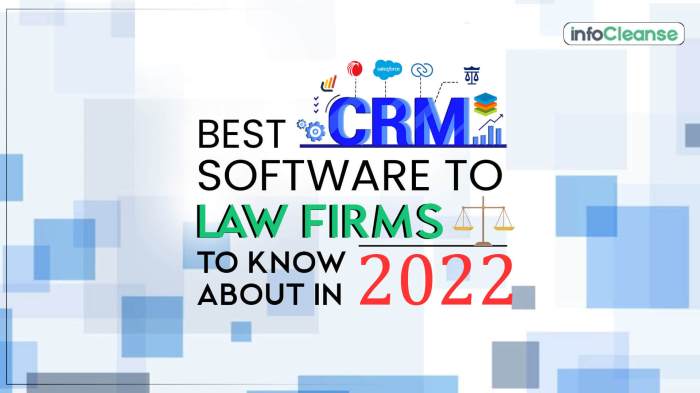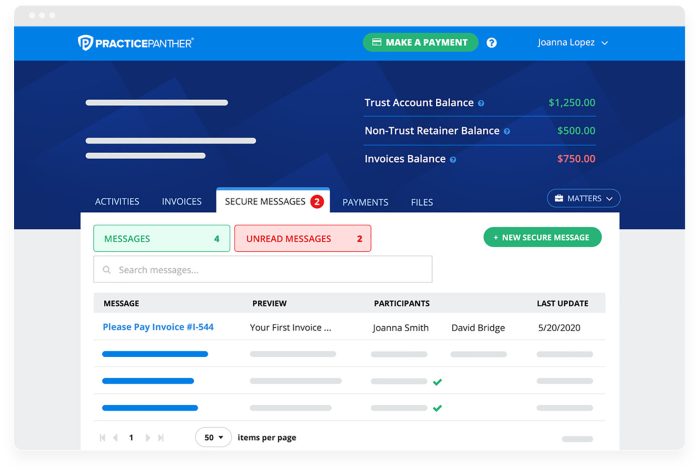CRM software for family law offers a transformative approach to managing the complexities of family law practices. Efficiently handling client communications, scheduling, document management, and billing is crucial for success in this demanding field. This allows lawyers to focus on providing exceptional legal counsel rather than being bogged down by administrative tasks. The right CRM system can significantly improve client relationships, boost operational efficiency, and ultimately contribute to a more streamlined and successful practice.
By centralizing client information, a CRM system enhances communication, ensuring timely responses and reducing the risk of missed deadlines or crucial details. Features such as automated reminders for appointments, integrated calendars, and secure document storage contribute to a more organized and productive workflow. Moreover, the ability to track case progress, generate reports, and analyze key performance indicators provides valuable insights for strategic decision-making.
The practice of family law is inherently complex, demanding meticulous organization and efficient communication. Juggling multiple cases, clients, deadlines, and court appearances can quickly become overwhelming. This is where a robust Customer Relationship Management (CRM) system specifically designed for family law firms can make a significant difference. A well-implemented CRM can streamline your workflow, improve client communication, enhance collaboration, and ultimately, contribute to better case outcomes and a more profitable practice.
Understanding the Unique Needs of Family Law Practices
Family law presents unique challenges that general-purpose CRM software may not adequately address. Unlike other legal specialties, family law often involves highly emotional clients dealing with sensitive personal matters. Effective communication, empathy, and careful documentation are paramount. A CRM for family law needs to facilitate:
Key Features for Family Law CRM Software:, Crm software for family law
- Secure Client Data Management: Family law involves highly sensitive personal information, including financial details, children’s records, and potentially confidential communications. A robust CRM must adhere to strict data privacy regulations like HIPAA and GDPR, offering features like encryption, access controls, and audit trails.
- Calendar and Scheduling Integration: Managing court dates, client meetings, and deadlines is crucial. A CRM with a built-in calendar and scheduling feature, possibly integrating with popular calendar applications like Google Calendar or Outlook, is essential for efficient time management.
- Document Management: Family law cases generate a large volume of documents. A CRM with integrated document management capabilities allows for secure storage, easy retrieval, and version control, minimizing the risk of lost or misplaced files.
- Communication Management: Effective communication is vital in family law. The CRM should facilitate seamless communication with clients via email, phone, and secure messaging, maintaining a clear record of all interactions.
- Case Management: The ability to track case progress, deadlines, and associated tasks is critical. A good CRM provides customizable workflows and task management features to keep cases organized and on track.
- Reporting and Analytics: Data-driven insights are essential for improving efficiency and profitability. A CRM with robust reporting and analytics capabilities allows you to track key metrics, identify bottlenecks, and optimize your practice management strategies.
- Collaboration Tools: Family law often involves teamwork. The CRM should facilitate seamless collaboration among lawyers, paralegals, and other staff members, ensuring everyone has access to the necessary information.
- Client Portal: A secure client portal allows clients to access their case files, communicate with the firm, and update their information, fostering transparency and efficiency.
- Integration with other Legal Software: Seamless integration with other legal software, such as practice management software, e-filing systems, and accounting software, streamlines workflows and eliminates data silos.
Choosing the Right CRM for Your Family Law Firm
Selecting the right CRM requires careful consideration of your firm’s specific needs and budget. Here are some key factors to consider:

Source: infocleanse.com
Factors to Consider When Choosing a Family Law CRM:
- Scalability: Choose a CRM that can grow with your firm. Consider the potential for future expansion and ensure the software can handle an increasing number of cases and clients.
- Ease of Use: The CRM should be intuitive and easy for your staff to use. A complex system can lead to frustration and decreased efficiency.
- Cost: Consider the initial cost of the software, as well as ongoing maintenance and support fees. Compare pricing models and features to find the best value for your investment.
- Customer Support: Reliable customer support is essential, especially when dealing with complex technical issues. Look for a vendor that offers responsive and helpful support.
- Security and Compliance: Ensure the CRM complies with relevant data privacy regulations and offers robust security features to protect sensitive client data.
- Integration Capabilities: Assess the CRM’s ability to integrate with other software used in your practice, such as accounting software, document management systems, and e-filing platforms.
Top CRM Software Options for Family Law Firms
(Note: This section would list specific CRM software options suitable for family law firms. Due to the rapidly changing market and potential for bias, specific product names are omitted here. Researching current market leaders is recommended.)
Implementing and Optimizing Your Family Law CRM
Successfully implementing a CRM involves more than just choosing the right software. It requires careful planning, training, and ongoing optimization. Consider these steps:
Implementing Your CRM Successfully:
- Data Migration: Carefully plan the migration of existing client data to the new CRM system. Ensure data accuracy and integrity throughout the process.
- Staff Training: Provide comprehensive training to your staff on how to use the CRM effectively. Hands-on training and ongoing support are crucial for adoption.
- Workflow Optimization: Analyze your existing workflows and adapt them to leverage the CRM’s capabilities. Streamline processes and eliminate redundancies.
- Regular Monitoring and Reporting: Track key metrics and use the CRM’s reporting features to monitor progress and identify areas for improvement.
- Continuous Improvement: Regularly review and update your CRM strategy to ensure it continues to meet your evolving needs.
Frequently Asked Questions (FAQ)
- Q: What is the average cost of CRM software for family law firms? A: The cost varies greatly depending on the features, number of users, and vendor. Expect to pay anywhere from a few hundred dollars per month to several thousand dollars per year.
- Q: How long does it take to implement a CRM? A: Implementation time depends on the size of your firm, the complexity of the software, and the amount of data migration required. It can range from a few weeks to several months.
- Q: What are the benefits of using a CRM in family law? A: Benefits include improved client communication, enhanced case management, increased efficiency, better organization, improved data security, and increased profitability.
- Q: Is my client data safe in a CRM? A: Reputable CRM vendors prioritize data security and compliance with regulations like HIPAA and GDPR. Choose a vendor with strong security features and a proven track record.
- Q: Can a CRM help my firm grow? A: Yes, by streamlining operations and improving client communication, a CRM can free up time and resources, allowing you to focus on business development and attracting new clients.
Conclusion
Investing in a CRM specifically designed for family law can significantly improve your firm’s efficiency, profitability, and client satisfaction. By carefully selecting the right software and implementing it effectively, you can transform your practice and achieve better outcomes for your clients. Take the time to research available options and choose the best fit for your firm’s unique needs.
Call to Action: Crm Software For Family Law
Ready to streamline your family law practice and experience the benefits of a dedicated CRM? Contact us today for a free consultation to discuss your needs and explore the best solutions for your firm.
Implementing CRM software in a family law practice represents a significant investment in efficiency and client satisfaction. By streamlining administrative processes, improving communication, and providing valuable data-driven insights, these systems empower legal professionals to focus on what truly matters: providing the best possible legal representation to their clients. The resulting increase in productivity and client satisfaction ultimately contributes to the long-term success and growth of the firm.
FAQ Overview
What are the key features to look for in a family law CRM?
Essential features include secure client data storage, conflict-of-interest checking, calendar and scheduling tools, document management capabilities, communication tracking (email, phone, etc.), and customizable reporting.

Source: practicepanther.com
How much does family law CRM software typically cost?
Pricing varies greatly depending on the features, number of users, and vendor. Expect to find options ranging from affordable monthly subscriptions to more expensive enterprise solutions. It’s crucial to compare features and pricing before committing.
Can a CRM system integrate with existing legal software?
Many CRM systems offer integrations with other legal software, such as case management systems and accounting software. Check for API compatibility or pre-built integrations to ensure seamless data flow.
What are the security implications of using a CRM for sensitive client data?
Data security is paramount. Choose a CRM provider with robust security measures, including encryption, access controls, and compliance with relevant data privacy regulations (e.g., GDPR, HIPAA).
